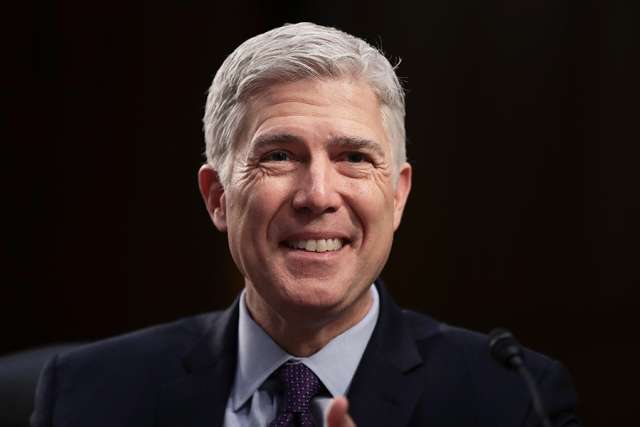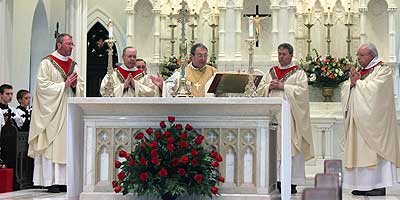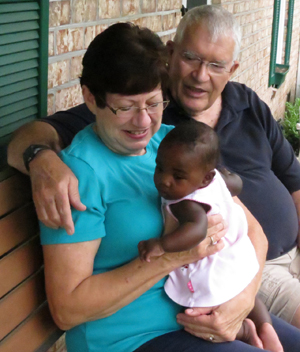
WASHINGTON, D.C.— Pro-life and religious freedom advocates cheered the Senate’s confirmation of Judge Neil Gorsuch on Friday to the U.S. Supreme Court, filling an almost 14 month-long vacancy.
“As Catholics, we welcome the confirmation of a judge whose record adheres to the Constitutional right to free exercise of religion without government bullying and whose scholarship affirms the inherent dignity in all people,” Ashley McGuire, senior fellow with The Catholic Association, said on Friday.
Judge Gorsuch of the 10th U.S. Circuit Court of Appeals was tapped by President Donald Trump on Feb. 1 to fill a vacancy left on the bench by the death of Justice Antonin Scalia in February 2016.
While President Barack Obama had nominated Merrick Garland, chief judge of the D.C. circuit court, to fill Scalia’s seat, the Republican-led Senate refused to vote on his confirmation, saying they would wait until after the presidential election to confirm a nominee from the new president.
Trump had promised on the campaign trail to nominate a pro-life judge. While refusing to directly answer if he supported the repeal of Roe v. Wade, he said in the final presidential debate in October “if that [repeal] would happen, because I am pro-life and I will be appointing pro-life justices … it [the legality of abortion] will go back to the individual states.”
Pro-life leaders praised the confirmation. Marjorie Dannenfelser, president of the Susan B. Anthony List, stated that “the swift fulfillment of President Trump’s commitment to appoint pro-life Supreme Court justices is a tremendous win for the pro-life movement.”
“November exit polls showed that 1 in 5 Americans prioritized the Supreme Court nomination when casting their vote, and with a majority of 57 percent of those voters casting a vote for Donald Trump, it is clear that the majority of American voters wanted a strict constructionist,” Jeanne Mancini, president of March for Life, said on Friday.
The Senate voted 54-45 to confirm Judge Gorsuch on April 7 after Majority Leader Mitch McConnell ditched the parliamentary rules of requiring a 60-vote majority to bring confirmations of Supreme Court judges to the floor for a vote.
Senate Democrats had initially gathered enough votes to filibuster the confirmation – which would have blocked a vote on Gorsuch from taking place – but McConnell chose the “nuclear option” of changing the rules to require only a simple majority of votes in the 100-seat chamber to end the filibuster, rather than the usual 60 votes.
His predecessor, former Democratic Majority Leader Harry Reid, also used the “nuclear option” to confirm judges to the lower federal courts and executive branch nominees.
Advocates of religious liberty said Gorsuch will offer much-need support to freedom of religion, which is suffering from an “erosion.”
“A Supreme Court justice, like Judge Gorsuch, who understands and values our founding documents, and hews closely to their meaning will help ensure that all Americans can continue to prosper and that we, as Catholics, remain free in exercising our religious principles,” said Dr. Grazie Pozo Christie, policy advisor with The Catholic Association.
On the Supreme Court, the first religious liberty case Gorsuch will hear will be on April 19 with oral arguments in Trinity Lutheran Church v. Pauley. That case involves a church’s eligibility for a state reimbursement program as it looks to make safety upgrades to its playground which is used by members and nonmembers of the church.
Opponents say that according to a Missouri state law, churches cannot benefit from taxpayer funds in cases like this because doing so would be an unconstitutional establishment of religion.
However, Trinity Lutheran Church and its lawyers are arguing that the Constitution does not require religious entities to be penalized simply because they are religious. The playground in question is for the entire community, not just members of the church, they say.
Another case that the Supreme Court has not taken up yet is Masterpiece Cakeshop v. Colorado Civil Rights Commission, where the state’s civil rights commission ruled that a Lakewood, Colo., cake artist could not decline to serve a same-sex wedding on the grounds of his religious beliefs. The court could take up that case now that Gorsuch is confirmed.
By Matt Hadro / CNA/EWTN News
Photo credit Angerer / Getty Images: Judge Neil Gorsuch testifies during his Supreme Court confirmation hearing before the Senate Judiciary Committee on March 21, 2017.



